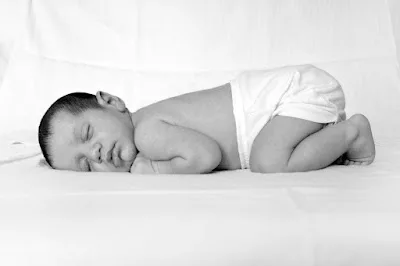Getting enough quality sleep is vitally important for a baby’s healthy growth and development. From hormonal influences to brain maturation, sleep plays a crucial role in every aspect of how a newborn blossoms into a thriving child. Let’s explore the profound impact that sleep has on a baby’s first years of life.

Sleep and Growth Hormones
Many of the hormones that regulate a baby’s physical growth are released or suppressed in response to the sleep-wake cycle. Growth hormone, appropriately named, is one of the most important hormones involved in a baby’s development—and it does the majority of its work during sleep.
Growth hormone is released in pulses, with the largest pulses occurring shortly after a baby falls into deep sleep. This pulsatile release triggers inner growth and cell reproduction throughout the body and brain. Insufficient sleep means fewer of these growth hormone pulses, which can lead to slowed growth rates.
Prolactin is another pivotal hormone influenced by sleep and wake cycles. Prolactin stimulates the production of breast milk in nursing mothers. Its levels also rise during a baby’s sleep, aiding in the development of cells and metabolism. Both prolactin and growth hormone work in tandem to foster a newborn’s physical growth and maturation.
Sleep and Brain Development
In addition to hormonal impacts, sleep is fundamentally important for a baby’s rapidly developing brain. While sleeping, neural pathways are formed, solidified, and reorganized—all critical processes for cognitive growth.
During the deepest stages of sleep, a baby’s brain is able to transfer and consolidate learnings and memories from the day into lasting neural networks and knowledge banks. This cementing of skills and experiences helps facilitate intellectual and developmental milestones.
REM (rapid eye movement) sleep is especially crucial for brain development in infants. REM sleep activates the parts of the brain used for learning, memory, and regulating emotions and behavior. Babies spend much more time in REM sleep than adults, highlighting its formative role.
Sleep patterns and cognitive maturation go hand-in-hand. As babies become toddlers and then preschoolers, their sleep cycles and brain capacities evolve together. Toddlers’ longer stretches of uninterrupted sleep correlate with improved memory, language skills, and emotional regulation compared to overtired peers.
Sleep and Emotional Development
Beyond pure cognitive growth, sleep is a key factor in an infant’s emotional and social development too. Babies who get sufficient sleep are happier, less fussy, more attentive, and interact better than overly tired infants.
Sleep deprivation puts excessive stress on a baby’s developing brain and can impair their ability to interpret facial expressions and socialize normally. Well-rested infants are better equipped to explore their environments, bond with caregivers, and reach developmental milestones for emotional intelligence.
Proper sleep also helps babies form strong circadian rhythms (the 24-hour cycles of sleeping, waking, and shifting hormone levels). This internal clock keeps moods and energy levels stable throughout the day. Babies with dysregulated sleep run the risk of becoming overstimulated, inconsolable, and unable to self-soothe.
Boosting Baby’s Sleep for Optimal Development
Many new parents grapple with establishing healthy sleep habits for their baby. But considering the immense impact on growth and development, it’s one of the most important investments you can make during these early years.
Creating a nightly bedtime routine is one of the best ways to set your baby up for quality sleep. A predictable series of steps like a warm bath, changing into pajamas, reading stories, and gentle rocking helps cue a baby’s body and mind that it’s time to wind down.
Paying attention to sleep environment factors like comfortable room temperature, white noise, and room-darkening curtains can also nurture better sleep for babies. High-quality swaddles or sleep sacks help newborns feel cozy and secure.
For older infants struggling with sleep associations, sleep training methods approved by pediatricians can teach self-soothing skills without undermining emotional needs. Babies Edition, for example, endorses fading strategies that wean babies off parental sleep dependencies gradually and gently.
If concerns persist despite your best efforts, don’t hesitate to consult your pediatrician or a child sleep specialist. They can diagnose issues like sleep apnea or offer tailored guidance on developmentally appropriate sleep needs and strategies. Always rule out underlying health conditions before assuming a baby’s fussiness equates to bad sleep habits.
Sleep: The Foundation for a Lifetime
While the wee hours can be challenging for tired parents, respecting a baby’s fundamental sleep needs pays dividends now and for years to come. From physical growth sparked by hormones to cognitive leaps supported by brain activity, sleep is the foundation that enables human development to progress at its fullest potential.
So embrace your baby’s sleep requirements with patience, empathy, and a long-term perspective. The more high-quality sleep they bank now, the better positioned they’ll be to flourish and grow in every way—physically, mentally, and emotionally. After all, babies don’t stay babies forever. Ensuring sufficient sleep gives them their best chance to grow up healthy, happy, and prepared to take on the world.









[…] challenges, you can make an informed decision about whether the Ferber Method is the right sleep training approach for your […]